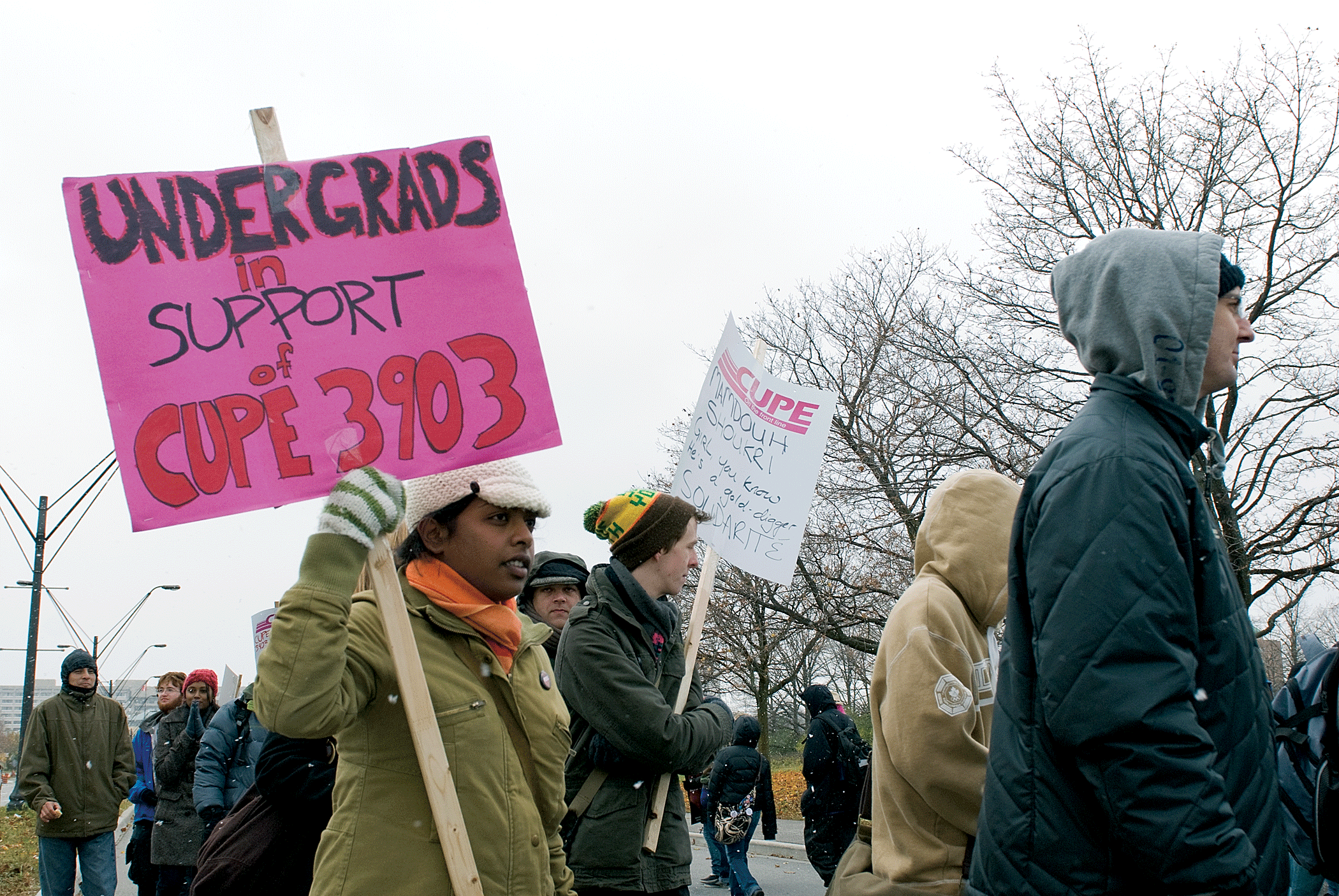Amelia Ruthven-Nelson
Contributor

For most people at York the strike may have been disastrous, but for me it was a strange form of salvation.
The strike year was my first year at university and my first time away from home. By October I was completely overwhelmed, both by schoolwork and pub nights. During the last week of the month I went to four parties in a row, when I should have been working on an essay due Friday. Needless to say, I skipped the class and continued partying through the weekend.
On Nov. 2, I went home feeling like I had been hit by a truck, and passed out on the couch. I figured the late nights had just caught up with me and I was exhausted; however, the next day I had all the symptoms of the flu.
Each day I just got worse, so I began panicking about missing school. While CUPE 3903 and York were in meetings, arguing over contracts, I was at the doctor’s office discovering that I had caught infectious mononucleosis.
Called mono for short, the virus is basically the flu with super-powers: all of the flu symptoms are strengthened, along with extreme pains and extreme fatigue. When I found out it can last anywhere between a few weeks and a year, I freaked. I would have been hysterical, except I was too tired.
Lucky for me, a day after I found out what was wrong, CUPE declared a strike. It gave me a bit of hope.
I naively thought that maybe three weeks or so would give me enough time to get back on my feet. That the Strike God was on my side.
I was bedridden for most of the three months. I never left the house during November and the first half of December. No doubt about it, if it weren’t for the strike, I would have lost a year.
I’m sure most of you have a jam-packed schedule this November, with midterms, essays and exams. Missing the month of November is an academic kiss of death, so had CUPE not gone on strike, I’d have been ousted.
Not only did the strike save me by giving me time to recover, it also allowed me to get my priorities in order. I reflected on the first two months of school and realized six courses were too much for my first year, so I dropped the course in which I had fallen most behind. Due to the strike, York offered full refunds for courses dropped during the months of the strike. It felt as if they were offering me a fresh start.
January was when I personally became frustrated with York. I was still benefiting from it because I needed the time to rest after the effects of the virus. The strike wasn’t troubling me, but the reactions of people in the news was. The York strike was all over television, but it seemed like no one cared to stop.
I remember hearing a comment in the news about how students should not worry because they are paying for credits, not classes, and I was livid. I was eager to learn and listen to lectures, and it was insulting to me that someone would suggest otherwise. I didn’t understand why the government hadn’t acted earlier for the thousands of us that needed help. It really felt like nobody cared about the students.
Transitioning back into life after the strike was not easy. The new group of friends I made fell apart. It felt like the first day of school all over again. I also felt like I was being cheated a bit. Tuition was the same, if not more, at other universities that had eight full months of school. I was sure our education was of poorer quality because of all the cuts made to make up for lost time.
Because of the strike, I was able to return to school, a better and healthier student. I took more time to study and realized that just because it was Thursday, it didn’t mean I had to party.
The strike saved me, but it definitely harmed York. As I mentioned before, it left us feeling like no one really cared for the students. We were taken advantage of, and had our wallets emptied, and that feeling has definitely stuck with York over the years.
Most students fear being screwed over by York and the administration. That is the legacy of the strike.
How the strike saved my school life



